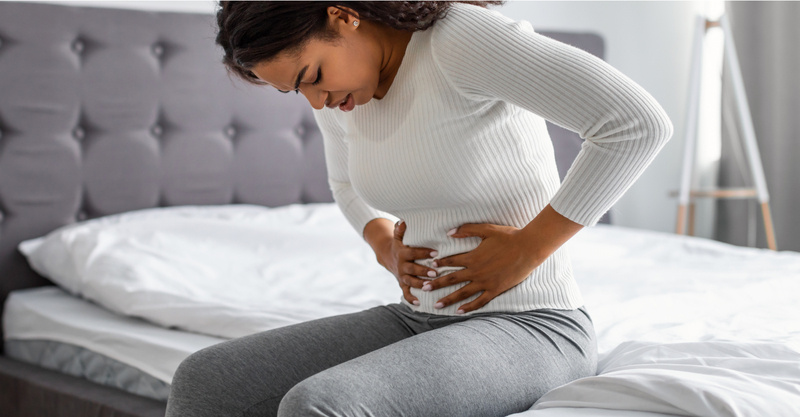Key Points
- Chlamydia is a common bacterial infection transmitted through sexual contact. It primarily affects the genitals and rectal area but can also occur in the throat. It is highly prevalent among sexually active teens and young adults, with many cases going undetected due to asymptomatic infections.
- Chlamydia can lead to serious complications if left untreated, such as infertility, pelvic inflammatory disease in women, and rare infections like epididymitis in men. It can also cause adverse effects during pregnancy, including premature labor, low birth weight, and potential transmission to the infant during vaginal delivery.
- Testing and treatment are crucial for managing Chlamydia. Diagnosis is typically done through a swab or urine sample, and antibiotics are the primary form of treatment. It is important to complete the full course of antibiotics, notify sexual partners about the infection, and practice safe sex to prevent further transmission. Regular screenings are recommended for sexually active individuals, especially after unprotected sex or with new partners.
What is Chlamydia?
Chlamydia is caused by a bacteria called Chlamydia Trachomatis and usually affects the genitals and rectal area, however, a small number of infections do occur in the throat.
How common is Chlamydia?
Chlamydia is one the most common STIs in the United States and is very common among sexually active teens and young adults.
The CDC reports that around 61% of new infections occur in people between the ages of 14 and 24. In 2020, more than 1.5 million cases were reported. There are likely more cases than reported, because many Chlamydia infections are asymptomatic and thus go undetected.
How do you get Chlamydia?
Chlamydia is transmitted through sexual contact with an infected person. This includes sexual contact with the vagina, penis, anus, or throat.
The bacteria that causes Chlamydia can infect the cervix in women, and the urethra, rectum, or throat in both men and women. Infants can become infected when passing through the birth canal during vaginal delivery if the mother has an active infection.
It is important to note that the CDC reports that you can become infected with Chlamydia even if your partner doesn’t ejaculate.
Can Chlamydia be transmitted by non-sexual contact?
Chlamydia cannot be transmitted by non-sexual contact like hugging, kissing, sharing drinks, coughing, or sneezing. Rarely, a Chlamydia infection can occur in the back of the throat. This likely happens after someone has engaged in oral sex with an infected person. Although more research is needed, a Chlamydia infection of the throat is not likely to spread through saliva.
Who is at risk of getting Chlamydia?
Anyone who is sexually active is at risk of contracting a chlamydia infection. However, certain groups of people are at a slightly higher risk. These higher-risk individuals include:
- Sexually active teens and young adults
- People who have multiple sexual partners
- People who do not use condoms regularly
Symptoms of Chlamydia
Chlamydia symptoms vary slightly between men and women. It is important to note that many people with Chlamydia infections do not experience any symptoms at all.
Symptoms of Chlamydia in women
Chlamydia is more common in women. Researchers believe this is because the female anatomy is more hospitable to bacteria growth. The CDC reports the most common symptoms of Chlamydia in women are:
- A change vaginal discharge
- Vaginal bleeding between periods
- Pain or burning during urination
- Itching and skin irritation inside the vagina or labia
- Pain during intercourse
- Lower abdominal pain
- Pain, discharge, or bleeding around the anus
Symptoms of Chlamydia in men
The majority of Chlamydia infections in men are asymptomatic. For those who do experience symptoms, the most common is painful urination. Men can also experience:
- Unusual discharge from the penis
- Pain or burning during urination
- Swollen or painful testicles
- Pain, discharge, or bleeding around the anus
- Itching and skin irritation around the urethra (the opening of the penis)
Chlamydia with no symptoms
It is important to note that many who are infected with Chlamydia do not have any symptoms at all. It is also possible that symptoms are so minor that they go unnoticed or are mistaken for something else, such as:
This is why it is important to have open and honest communication with your sexual partner about their sexual history and when the last time they got tested for STIs was and the results of the testing.
Is Chlamydia serious?
In its acute phase, Chlamydia may not seem too serious. In many cases, it presents with minor symptoms or no symptoms at all. However, if left untreated Chlamydia can cause more serious conditions.
What happens if Chlamydia is not treated?
Chlamydia can lead to deeper infections in the reproductive organs and urinary tract. For women, Chlamydia can lead to Pelvic Inflammatory Disease and/or infertility.
In men, an untreated Chlamydia infection can lead to a rare infection of the testicals called Epididymitis.
For both men and women, Chlamydia can trigger a condition called reactive arthritis. This is joint pain caused by infections of the genitals, digestive system, or urinary tract.
How does Chlamydia affect pregnancy?
Chlamydia during pregnancy increases a women’s risk of several complications, including:
- Having her water break early
- Going into preterm labor
- Having a baby with low birth weight
Vaginal delivery with a Chlamydia infection will expose the infant as it passes through the birth canal. This exposure may cause eye or lung infections in the infant.
What to do if you think you have Chlamydia
If you have the symptoms of Chlamydia or if you have had unprotected sex, the first step is to make an appointment to get an STD test.
You can also schedule STD testing at your local health department or with a healthcare provider at a walk-in clinic or urgent care.
Diagnosis and testing for Chlamydia
Chlamydia is typically diagnosed using a swab of the infected area or a urine sample. NAATs (nucleic acid amplification tests), are considered one of the most reliable diagnostic tests available for detecting Chlamydia. A urine sample can also be used to test for Chlamydia, however, this is a slightly less effective test.
Getting tested for Chlamydia
Getting tested for Chlamydia is usually a quick and painless process. There are even at-home testing options available. Chlamydia testing involves either a urine sample, or a swab test. Your healthcare provider or at-home test kit will give you more information on how to properly gather your sample.
Where to get tested for Chlamydia
You can get tested for Chlamydia, as well as other STIs at the following facilities:
- Your local public health office or health department
- Family planning clinics
- Student health centers
- Urgent care clinics
In some cases, you can order at-home testing. Though the accuracy of these tests may vary and you may experience a delay in results if you have a test that requires you to send your sample to a laboratory through the mail.
Who should get tested for Chlamydia?
Chlamydia may have few to no symptoms. For this reason, the CDC recommends that anyone who is sexually active should have regular health screenings for Chlamydia. If you recently had unprotected sex (vaginal, oral, or anal) with a new partner, it is a good idea to be tested as soon as possible.
How Chlamydia is treated
Antibiotics are the most common form of treatment for Chlamydia.
What medications are used to get rid of Chlamydia?
There are many different antibiotics that work for treating Chlamydia. The most commonly prescribed according to the CDC are:
- Azithromycin
- Doxycycline
These antibiotics are taken by mouth in either a pill or liquid form. Your prescribing doctor or pharmacist will give you a full list of instructions and what you can expect from any antibiotic.
How long does it take to cure Chlamydia?
Typically, Chlamydia results improve within a week of taking the antibiotic. If you are experiencing symptoms with your Chlamydia infection, the symptoms may get better within 1 to 3 days of starting your antibiotic. It is very important to continue taking the antibiotic as directed and complete the entire course.
If you test positive for Chlamydia, the CDC recommends that you should notify all your recent sexual partners so they can be tested for the infection.
How to prevent Chlamydia
You can prevent a Chlamydia infection by practicing safe sex with:
- Condoms
- Dental dams
- Honest communication with your partner
How condoms help prevent Chlamydia
Condoms are used to cover the penis during oral and penetrative sex. They are highly effective in preventing the spread of STIs including Chlamydia, as well as preventing unwanted pregnancy. You may be able to get free condoms at your local health department or student health location.
How dental dams help prevent Chlamydia
Dental dams are used to cover the vagina or rectal area during oral sex. They are highly effective in preventing the spread of STIs, including Chlamydia. You can purchase condoms and dental dams at most drugstores, retail stores, and convenience store locations.
How communication helps to prevent Chlamydia and other STIs
Open and honest communication with all your sexual partners is also a great way to prevent a Chlamydia infection. Before you engage in unprotected sex with a partner, both you and your partner should be tested for STIs.
Keep in mind that many Chlamydia infections are asymptomatic, which means someone can have an infection without realizing it. Getting tested is the best way to confirm you and yousolvhealth.com/health-a-zr partner is infection free.
What to do if exposed to Chlamydia
If you have anal, oral, or vaginal sex with a new partner, or if a sexual partner tests positive, you should schedule a test as soon as possible. You should also abstain from sexual contact until you have your test results and until after you complete treatment if you test positive.
Other conditions related to Chlamydia
Chlamydia can also make you more susceptible to other sexually transmitted infections, like:
- Gonorrhea
- HIV
- Syphilis
- Genital Herpes
- Trichomoniasis
Are Chlamydia and gonorrhea similar?
Chlamydia and gonorrhea are both bacterial infections that are spread by sexual contact. They have some similar symptoms, including:
- Abnormal vaginal discharge
- Discharge from the penis that is not related to ejaculation
- Pain or burning during urination
- Painful or swollen testicles
- Vaginal bleeding in between periods
- Pain, discharge, or bleeding from the rectum
- Itching or irritated skin in or around the vagina, labia, rectum, or penis
Gonorrhea is also treated with antibiotics, but it is important to be tested to make sure you get the right antibiotic for your infection.
Are herpes and Chlamydia similar?
A Chlamydia infection can make you more susceptible to other infections and conditions. Herpes is similar to Chlamydia only in that it can be spread by sexual contact. However, herpes is a chronic condition that is caused by a virus, not a bacteria like Chlamydia.
Herpes is usually characterized by sores and blisters around the mouth or in the genital or rectal area. Treatment can help resolve the sores, but they may return again since there is no cure for the herpes virus.
Chlamydia and urinary tract infections (UTIs)
Chlamydia can mimic a urinary tract infection because it often causes painful urination or a burning sensation when urinating. Because of this, some women may delay getting testing for Chlamydia and seek treatment for a UTI first.
Women who are having unprotected sex should ask for a Chlamydia test if they are experiencing symptoms of a UTI, so they get the most appropriate treatment as quickly as possible.
Chlamydia and yeast infections
A yeast infection can cause a change in vaginal discharge (or a start in penile discharge for men), and itching/irritation. These are also symptoms of Chlamydia. If you are having unprotected sex, you should consider STI testing if you experience symptoms of a yeast infection.
The antibiotics used for treating Chlamydia (and other STIs) can also cause an imbalance of bacteria in the vagina. This can cause a yeast infection. Your healthcare provider can give guidance on how to prevent a yeast infection during your course of STI treatment.
Chlamydia and Epididymitis
Epididymitis is inflammation of the epididymis (a tube behind the testicles that is necessary for ejaculation). Serious cases of epididymitis can cause male infertility.
Frequently asked questions
Should I be worried about Chlamydia?
Chlamydia is the most common STI in the United States—having unprotected sex with multiple partners or a new partner puts you at risk. The great news is you can protect yourself by using condoms and dental dams when you engage in sexual activity. You can also protect yourself by getting routine screenings and encouraging your partner(s) to do the same.
How can I tell if I have Chlamydia?
Many people have few to no symptoms when infected with Chlamydia, reports the CDC. Chlamydia can also mimic other conditions like yeast infections, urinary tract infections, or other STIs. The most accurate way to know if you have Chlamydia is to get tested.
How long does a Chlamydia infection last?
A Chlamydia infection can last for months if left untreated. Once you start antibiotic treatment, it will usually resolve by the end of your course of antibiotics. The CDC recommends abstaining from sexual activity until you complete your course of antibiotics.
Getting a repeat infection of Chlamydia is possible if you are re-exposed, so it is important to let your partner(s) know to get tested and seek treatment.
Can Chlamydia go away on its own?
It is very unlikely that a Chlamydia infection goes away on its own. According to the CDC, untreated Chlamydia infections can cause permanent damage and secondary infections, so it is best to get treated as soon as possible.
Once I have Chlamydia, will I always have Chlamydia?
No, Chlamydia is easily cured with antibiotics. Although having a Chlamydia infection does raise your risk for reinfection. To help lower this risk, you should encourage your sexual partner(s) to get tested and practice safe sex.
How did I get Chlamydia when my partner didn’t?
There are a few reasons why one sexual partner tests positive while the other tests negative. One reason may be that the negative partner was recently exposed and hasn’t developed an infection yet.
Another reason is that the positive test was false (less likely), or the negative test was false (more likely). A negative test that is incorrect (known as a “false-negative”) happens when the test is done incorrectly, or when the sample is damaged or compromised in some way. Rarely, a faulty test can yield a false positive result.
Can you get Chlamydia from kissing?
There is no reputable evidence to support a connection between kissing and the transmission of Chlamydia.
How long will Chlamydia show up on an STD test?
A test for Chlamydia will only show positive results if you have an infection, notes the CDC. Once you are clear of infection, you should have a negative result unless you get reinfected.
How long after Chlamydia exposure will I develop symptoms?
The incubation period for Chlamydia is unclear according to the CDC. However, symptoms can appear in a range from days to weeks after exposure. In a large number of cases, no symptoms appear at all but Chlamydia can still be detected by testing.
Can you still have symptoms of Chlamydia after treatment?
Symptoms should resolve with treatment. If you are still experiencing symptoms after you complete your course of treatment, you should be reevaluated.
Solv has strict sourcing guidelines and relies on peer-reviewed studies, academic research institutions, and medical associations. We avoid using tertiary references.










